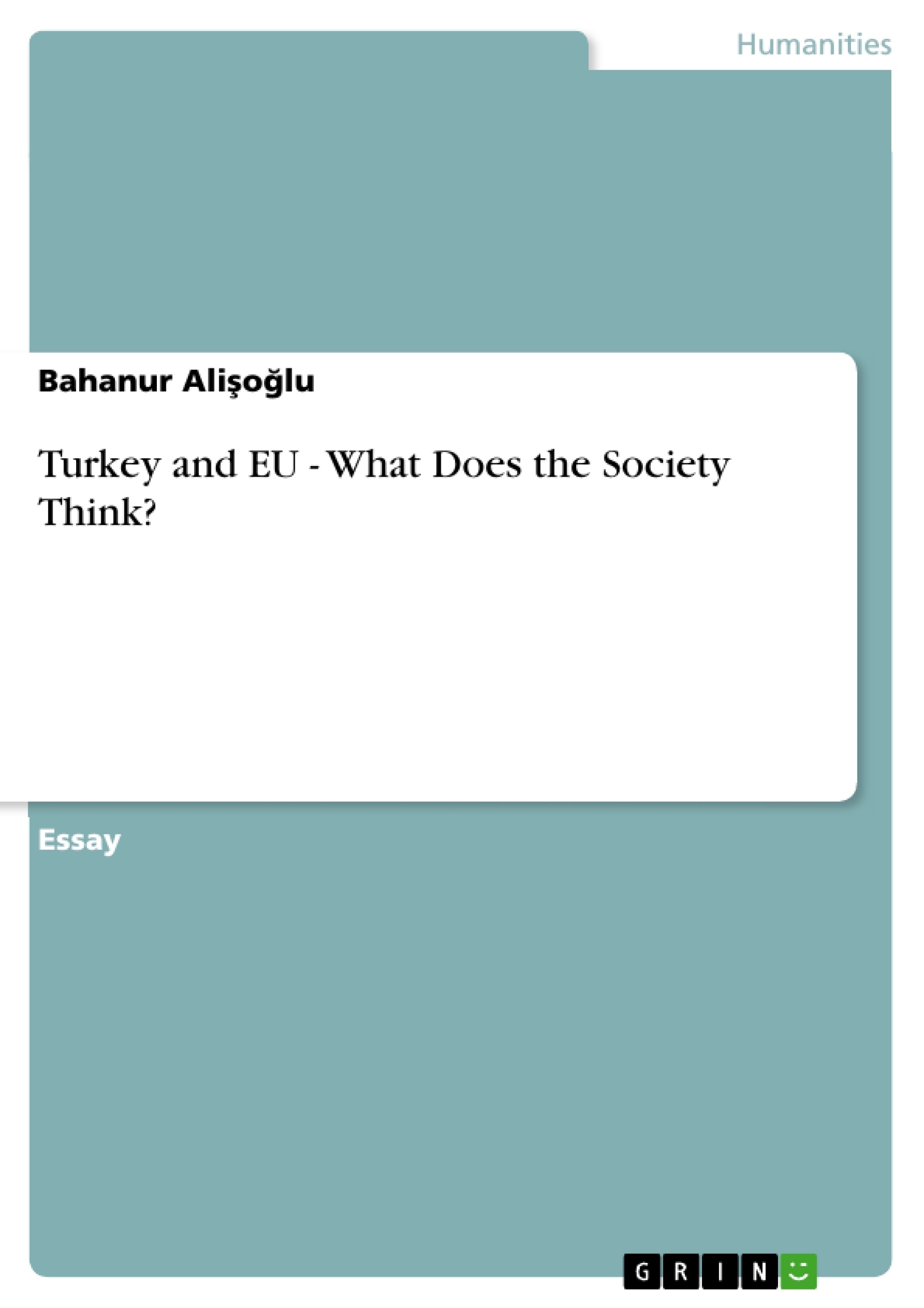The aim of this study is to understand the fatiguing relationship between Turkey and
European Union which has been lasting for four decades and to come to perceive whether
Turkey is a proper candidate or not when examined carefully. There are some debates over
Turkish society and its approach to European Union which reinforces Turkey to change in
terms of social structures such as policy and economy. This study is also to be prepared in
order to explain what has a big impact on Europe’s viewpoint about Turkey and Turkishness.
Moreover, some Turks’ opposition to European Union is added to the study. When doing this
study, it has been read several sources and articles by well-known Turkish authors and
teachers as well as foreign researchers who keep an eye on Turkey and EU relations.
In light of that study, Turkey and EU relations might be told in another words and be
understood that some historical and cultural effects can determine what society thinks.
Inhaltsverzeichnis (Table of Contents)
- A Brief History of EU and Turkey
- European Relations During AKP Governance
Zielsetzung und Themenschwerpunkte (Objectives and Key Themes)
This study aims to analyze the complex and enduring relationship between Turkey and the European Union, which has spanned four decades. It seeks to understand whether Turkey is a viable candidate for EU membership, considering the societal and structural changes needed for Turkey to align with EU standards. The study also explores the factors influencing Europe's perception of Turkey and Turkish society, including opposition from within Turkey.
- Turkey's historical relationship with the European Union
- The impact of social, political, and economic factors on Turkey's candidacy
- European perceptions of Turkish society and identity
- Opposition to EU membership from within Turkish society
- The role of the Turkish government and the AKP party in EU relations
Zusammenfassung der Kapitel (Chapter Summaries)
A Brief History of EU and Turkey
This chapter traces the history of Turkey's relationship with the European Union, starting with Turkey's application for membership in the 1960s. It highlights the key events and challenges that have shaped this complex relationship, including the Ankara Association Agreement, the Cyprus crisis, and Turkey's economic and political reforms. The chapter explores the reasons for EU's hesitations and Turkey's efforts to bridge the gap between them.
European Relations During AKP Governance
This chapter examines Turkey's relations with the EU under the rule of the Justice and Development Party (AKP) since 2002. It discusses the AKP's goals and strategies regarding EU membership, highlighting their emphasis on economic integration and the potential for Turkey to become an Islamic country. The chapter explores the concerns and perspectives of both European Union and Turkish society about the AKP's approach to EU relations.
Schlüsselwörter (Keywords)
The main keywords and focus topics of this text include Turkey, European Union, Turkish society, EU membership, AKP, social structures, political reforms, economic development, Turkish identity, and European perception.
Frequently Asked Questions
How long has the relationship between Turkey and the EU lasted?
The formal relationship and Turkey's quest for membership have spanned over four decades, starting significantly in the 1960s.
What was the impact of the AKP governance on EU relations?
Under the AKP, Turkey initially emphasized economic integration and political reforms, though concerns about social structures and identity remain central to the debate.
Why is there opposition to EU membership within Turkey?
Opposition stems from concerns over national sovereignty, cultural identity, and the perception of EU's hesitations as being biased against Turkey's unique social fabric.
What is the Ankara Association Agreement?
It is a key historical document that laid the foundation for Turkey's economic and political cooperation with the European Economic Community (precursor to the EU).
How does Europe view Turkey's candidacy?
European viewpoints are often influenced by historical, cultural, and political factors, including Turkey's large population, economic status, and geographic location.
- Quote paper
- Bahanur Alişoğlu (Author), 2012, Turkey and EU - What Does the Society Think?, Munich, GRIN Verlag, https://www.grin.com/document/188879



